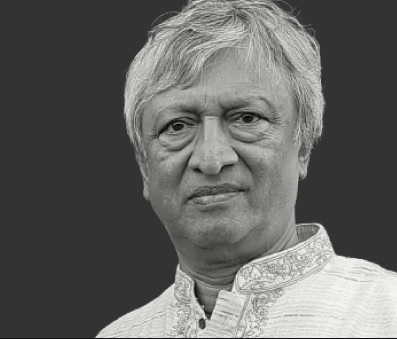Bangladesh is at a dangerous crossroads. Endless conflict or long-term stability—what is the nation's destiny?
An interview with freedom fighter and human rights advocate Delwar Jahid.
Delwar Jahid, a Canadian of Bangladeshi origin, is a political scientist, human rights lawyer, and journalist. He is a senior research fellow at several universities and a distinguished sociologist with links to European media and academia. Since 2003, Zahid has worked at St. Paul's College, University of Manitoba, and Professor Dr. Dean E. co-founded the Canadian Conflict Resolution Network with Peachey. His notable research, "Arbitration - The Rural Mediation of Bangladesh," has been referenced in international publications, and he has long been an advocate for transitional justice and human rights reform in Bangladesh, contributing to the movement alongside such notables as Father RW Timm and Justice Kamal Uddin Hussain. He is the President of the Bangladesh North American Journalists Network and serves on the board of directors of the John Howard Society of Manitoba, Canada. In this interview, he shares his insights on the recent student-led movement in Bangladesh, the role of the interim government, and the implications for peace and stability in the region.
Q: Can you briefly describe the student-political landscape in Bangladesh leading up to the August 5 Revolution? What grievances mobilized the people, and what could this mean for the country's future?
Delwar Jahid: Bangladesh's July-August 2024 student movement is an unprecedented blow to equality. What began as an anti-quota student movement—an apolitical front formed by students demanding quota reforms—quickly became a broad non-cooperation movement that eventually gained the support of various political parties. This wave of activism catalyzed significant changes, including pressure on Prime Minister Sheikh Hasina, who eventually left the country.
The movement aims to advance fairness and justice in educational institutions. At its core, it seeks to eliminate all forms of discrimination, ensuring equal opportunities for students regardless of background. Students have taken a strong stand against racism, sexism, and various forms of prejudice, using mass protests to voice their demands. The change on August 5 represents a push for immediate reforms and a shift towards lasting social transformation in Bangladesh, with equality for all students as a central principle.
Question: What was the constitutional framework when the interim government assumed power with the recent political changes?
Delwar Jahid: Bangladesh is constitutionally constituted as a parliamentary democracy, which sets out a clear hierarchy and process for governance. The President is the ceremonial head of state, elected every five years by the Jatiya Sangsad (National Parliament). At the same time, the Prime Minister – appointed by the President – is the executive leader and head of government. This framework outlines checks and balances across branches, yet rapid political changes raise critical questions about stability.
During the transition, more clarity was needed about how constitutional norms were maintained, particularly the role of interim and executive powers. Going forward, the future of this transitional governance structure will likely depend on its commitment to open governance, reforms, and upholding democratic principles.
Legal experts are skeptical about the legitimacy of Yunus's government under Bangladesh's existing legal framework. The constitution of the People's Republic of Bangladesh, promulgated in 1972, must be strictly adhered to to form any government in Bangladesh. This constitution sets out clear procedures for ensuring legitimacy, democratic values, and the rule of law that reflects the people's will—steps that seem to have been ignored in this instance. Amid growing political unrest, questions surrounding the legitimacy of this government have intensified.
Historically, in times of political crisis, Bangladesh has appointed caretaker governments to oversee elections. However, the system was abolished in 2011 through the 15th Amendment, a controversial move contested by many political parties calling for its reinstatement. Attempts to establish government authority outside this constitutional framework undermine Bangladesh's democratic principles.
Recent Political Reaction:
BNP Secretary General Mirza Fakhrul Islam Alamgir (September 22, 2024) strongly criticized the approach of the interim government. He questioned the government's legitimacy, claiming it was detached from the people, noting that "no reform is sustainable without the participation of the people." Fakhrul argued that banning student politics would primarily benefit the "powers of darkness" and suggested that the government consult political leaders to gauge public sentiment on governance reforms. On September 21, Fakhrul described the interim government as lacking the "revolutionary" government drive necessary to bring about meaningful change and stressed that "the will of the people must be taken into account."
On October 31, Sajib Wazed Joy, chief adviser to the interim government, published a critical Facebook post targeting Muhammad Yunus, accusing him of a "power grab" and describing him as "Bangladesh's biggest fascist." Joy insisted that the Awami League, Bangladesh's oldest and largest political party, would not be undermined or banned. He criticized Yunus's government for alleged restrictions on media freedom, drawing parallels with past authoritarian regimes.
Way Ahead --- This government's future legitimacy is uncertain, plagued by political fragmentation and governance instability. Concerns persist over human rights abuses, restrictions on media freedom, and the possible resettlement of anti-independence figures. Meanwhile, proposed changes to the national anthem, flag, and constitutional principles in the name of reform are adding fuel to the ongoing political fire. The government's ability to move the country forward remains questioned as it grapples with growing opposition and unresolved legitimacy issues.
In conclusion, the current political environment in Bangladesh highlights deep-seated concerns about regime legitimacy, constitutional loyalty, and the role of public participation in shaping the country's future. Legal experts and political leaders have raised critical questions about the legitimacy of Yunus' interim government, especially in light of constitutional requirements and recent political upheavals. As the country grapples with these issues, calls for genuine democratic engagement and a return to constitutional principles grow louder. This period is likely to prove crucial for Bangladesh, as its leaders face the challenging but essential task of reconciling political divisions, respecting democratic norms, and prioritizing people's will. How the government chooses to navigate this path will define its legacy and the future trajectory of democracy in Bangladesh.
Interviewer M. Rahman














